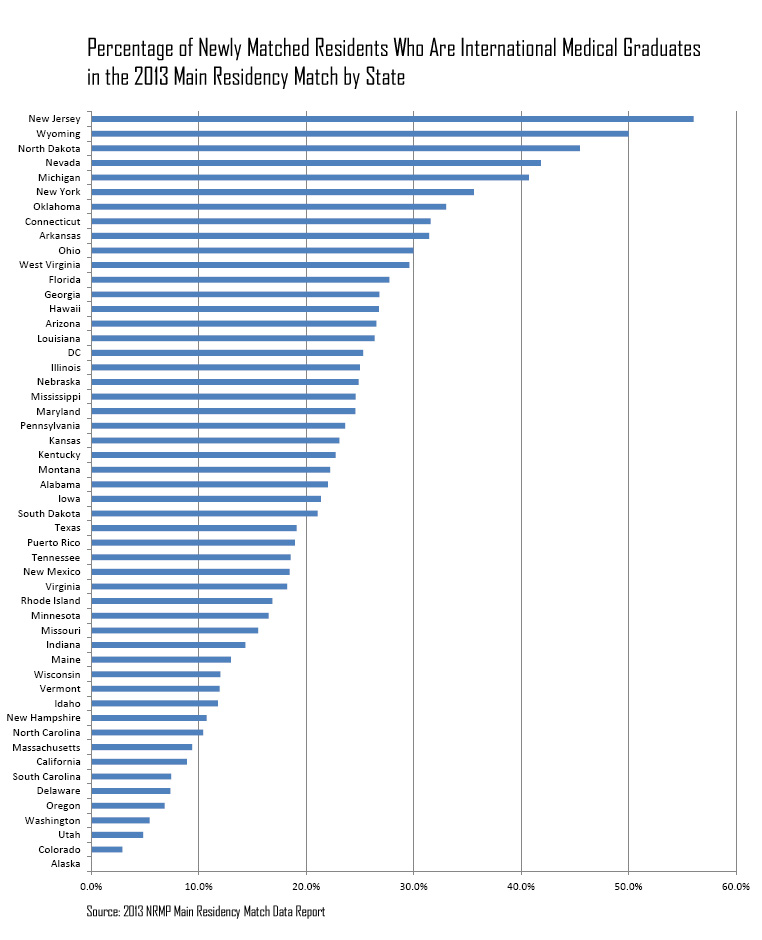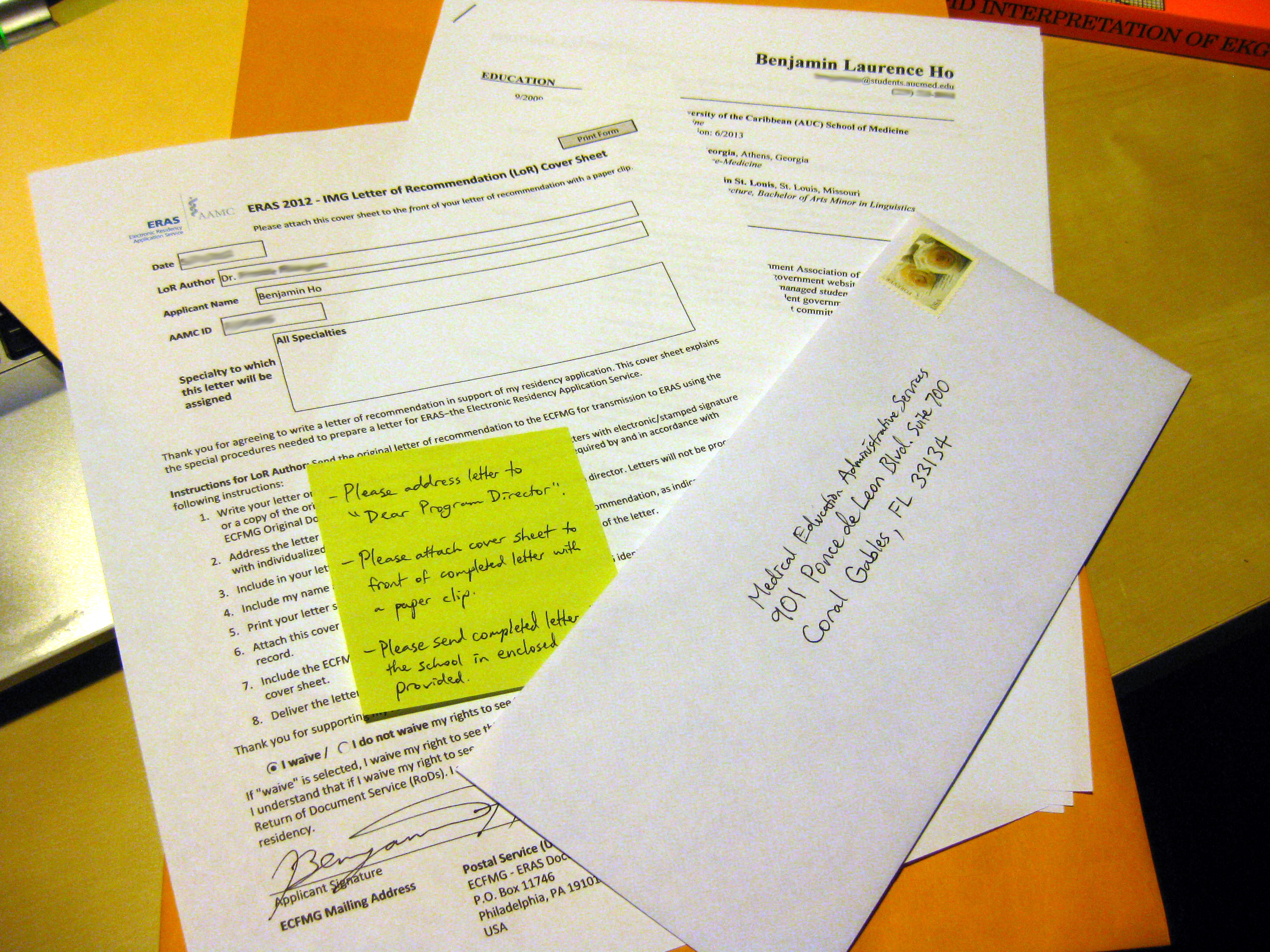How to Prepare for Residency Application Season
 Hi everyone! During the summer before the Match, it is important to start preparing for the residency application season. There are several things you can start doing to prepare for the residency application and interview season:
Hi everyone! During the summer before the Match, it is important to start preparing for the residency application season. There are several things you can start doing to prepare for the residency application and interview season:
Clean up your social media.
Understand that some residency programs and their connections may look you up online. As an aspiring physician, hopefully you’ve maintained a clean and professional online presence. If you have any “vulgar” content on Facebook, YouTube, Twitter, blogs, or other social media outlets, it’s a good idea to either remove the content, increase your privacy settings, or change your profile names so that it is more difficult to find you. If you have nothing to hide, great!
Take advantage of social media.
While some may argue that it is a good idea to get rid of your social media presence altogether, I personally disagree and believe there are a lot of advantages of not only keeping your social media accounts, but using them to your benefit. For one, there is a lot of great information you can get from joining an AUC Residency Match Facebook Group where you can gather different opinions and get a lot of your questions answered with help from your peers as well as alumni who have gone through the process already. NRMP also has a Twitter presence and hosts Main Residency Match Twitter chats from which you can learn a lot about the match process.
Instead of hiding your online profile, perhaps it’s an even better scenario for your potential employers to stumble upon your profile and be impressed by it. Afterall, you want to give them a positive impression of what they came to look for: who you are. Because of this, I recommend creating a LinkedIn account, and on it, post a professional profile picture of you looking your best, and showcase all the accomplishments you’ve done, skills you have, and other things you would put on a resume. It’s also a great way to highlight the stuff that you’ve done that you couldn’t put on your residency application (i.e. accomplishments before med school).
Learn about yourself.
To show residency programs who you are, you need to first know who you are. If you haven’t already, this is the time to start reflecting deeply about yourself. What do you want? What are your goals? What do you value? What can you offer to others?What are your strengths and weaknesses? How did you get to where you are today? What shaped you into the person you are today? You will need to know yourself very well in order to write a strong personal statement and interview well.
Practice Interviewing.
Once you know who you are, it’s important to practice how to express that in words. Practice with a partner the most common questions that will come up in an interview. Practice enough times so that you have a basic idea of how to answer them, but don’t practice so much that you are basically memorizing and spitting out robotic answers. Remember, you want to be prepared to answer questions but also be comfortable to act naturally like yourself.
Write your personal statement.
While you may be busy rotating and studying for shelf and step exams, don’t put off writing your personal statement until the last minute! It took me longer than I thought to write my personal statement, and many rounds of editing to make it sound satisfactory to me. While the ERAS website gives you 28,000 character spaces to paste your personal statement, you wouldn’t use up the entire allowed space. In fact, you shouldn’t. Your personal statement should only be about one page long, or around 700 words, give or take. Residency programs have hundreds of personal statements to read through, and they won’t want to read a personal statement that is more than a page long. Telling your personal story concisely in such a small space is a challenge and part of the reason why it takes so long to write. If you are applying to multiple specialties, you’ll need a different personal statement for each specialty.
If you have a draft of your personal statement written and would like it to be professionally proof-read, AUC has a free service for this. You can also consider using ResidencyStatement.com for proof-reading and editing. Their service is expensive, but many people find it useful. Note that they don’t write your essay for you, but instead are an editing service.
Update your resume.
If you haven’t already, create a list of everything significant you have done and achieved during medical school, like leadership positions, volunteer work, awards, projects, papers, presentations, or if you were chosen for anything, like as a student evaluator for prospective faculty members. This would help you fill out your ERAS residency application as well as the MSPE questionnaire which AUC uses to write you an MSPE letter to send to residency programs.
Research residency programs.
Start thinking about what kind of programs you would be interested in joining. Do you have a preferred location? Do you prefer specific styles of programs, like opposed vs. unopposed, or community-based or university affiliated? Do you prefer a particular size of residency? There are many sites out there where you can find information about residency programs, like FREIDA, or if you’re interested in family medicine, AAFP. If you are an IMG, a particularly good site to go to is Match A Resident. You’ll need to pay to get access, but it is well worth it. You can also go to the AUC website to see what programs AUC alumni have matched in in the past. I would then recommend you going to the residency program websites and look into what their curriculum is like, what their mission statement is, what their requirements are, and in general get familiar with what programs are out there.
There are a lot of things to do during residency application season that will keep you busy, especially if you still have rotations to complete and step exams to study for and take. I have known people who have found themselves scrambling to take step exams, write personal statements, get LoRs, and finding themselves not having everything ready by September 15, the first day that residency programs can see your application. I cannot stress enough how important it is to have everything prepared by this day. There are people who have lost opportunities in receiving interview invitations because they submitted their applications later than everyone else, got their step 2 scores in late, or did not get all their LoRs in on time. Because of this, prepare early, and you can start with some of the tips I’ve listed above. Best of luck everyone!
Benji
Links for Residency Interview and Match
- How to Apply for Residency
- How to Improve your MSPE Letter
- Most IMG-Friendly States
- How to Prepare for Residency Application Season
- How Many Residency Programs to Apply to?
- Questions Asked During a Residency Interview
- Dos and Don’ts of Residency Application and Interview
- How to Dress for a Residency Interview
- Following Up After a Residency Interview
- Tips on Ranking Residency Programs














Hi Benji,
Did you go through the ECFMG certification process before you were allowed to Match? Is it true that IMGs will have a delay period of six months between graduation and Match Day due to the ECFMG certification requirement for residency? If I begin AUC in September 2014, will I be allowed to Match in 2018 and begin residency in July of 2018? I apologize in advance for all these questions. I recently learned about the ECFMG certification for IMGs and I got confused about how it would affect my residency application period. I am a U.S. citizen, so I wanted to know if the ECFMG certification pertains to U.S. students schooling abroad.
Hi Vivian, everyone from AUC and other foreign medical schools have to go through ECFMG certification in order to start residency (ECFMG certification is not required to Match, but it is required to start residency). ECFMG acts as the “Dean’s Office” in the US for foreign medical schools and so we register to take the Step exams via ECFMG as well as apply for the match and upload our application documents via ECFMG. In order to get the ECFMG certificate, we have to have passed Step 1, Step 2 cs, Step 2 ck, and graduate from our medical school. I have never heard of a 6-month delay. I got my ECFMG certification within 2 weeks of finishing all my requirements. If you begin in September 2014, you will match in March 2018 and begin residency in July 2018, assuming you pass all your classes/rotations/exams on time and don’t have to repeat a semester or anything.
Hey Benji,
I am considering going to AUC for medical school and just wondering what are the percentage of students that match compared to SGU and ROSS? I could not find that statistics anywhere.
Hi Nafis,
According to AUC’s 2013 statistics, 82.3% of AUC grads matched in 2013. I am not sure about SGU and Ross, but I would imagine the statistics to be very similar. I would contact the schools to find out more, if they are willing to disclose this information. However, ultimately your likelihood to match is dependent on your exam scores, experience, social skills, and application strategy.
Hey Benji,
I just interviewed with AUC, and I had a few questions about the residency match process. For Internal Medicine or Family Medicine residency applications, did you find any bias towards DOs vs. US IMGs? And I was also wondering how to explain the gap between the 2016 86% first-time match rate for AUC and US IMG 53% NRMP match rate… does the NRMP number include only first-time seniors or also reapplicants? And do you know if pre-matches can still happen (heard about an all-in rule since 2014)? Thank you.
Did you find any bias towards DOs vs. US IMGs?
Depends on the program. My program, for example, we don’t have any DO residents. However, we have lots of Caribbean grads.
How to explain the gap between the 2016 86% first-time match rate for AUC and US IMG 53% NRMP match rate.
The NRMP match rate includes reapplicants. Also the NRMP number includes all international schools, good or bad, of which only a fraction is AUC.
And do you know if pre-matches can still happen?
Yes, some programs still do pre-match.
Hello Benji
I am a third year Saba student, currently doing my clerkships. My class entry is Sept 2014 and I was told that I would graduate on Sept 2018. But I want to try to apply for the match of 2018, I would have to try to to graduate by May 2018, which is still possible. My only concern is that I would have to schedule my step 2 CK on August 25 and hopefully have my score available before Sept 15. Do many residency program require to have Step 2 CS available as well and consider your application for interview while ECFMG certified? I won’t be taking it probably by November 2017. I am concerned of being filtered out by not having my CS score available. Will program strongly consider you if you have a strong Step 1 score and step 2 CK while CS is still pending? Thanks. I appreciate your advice.